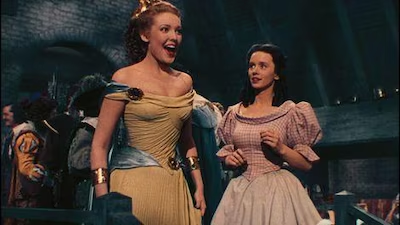Jessica Tandy

About
Biography
Filmography
Family & Companions
Notes
Received honorary law degree from Fordham University in 1985
"Only poets, not theater critics, should be allowed to write about her." --"New York Times" theater critic Frank Rich.
Biography
Versatile, commanding stage performer, often opposite husband Hume Cronyn, who acted in occasional features beginning in the early 1930s but was busiest in films while in her seventies and eighties. Tandy began acting onstage in her native England in her teens and by the mid-1930s was enjoying considerable success in the classics, playing Ophelia to John Gielgud's Hamlet in 1934 and playing Viola in Tyrone Guthrie's famous 1937 staging of "Twelfth Night." Separating from first husband, actor Jack Hawkins, in 1940, Tandy moved to America but initially had a thin time of it. Luckily, she met up-and-coming actor Cronyn, whom she married in 1942 and with whom she made several supporting appearances in American films of the 1940s. Her Hollywood debut was with Cronyn, in Fred Zinnemann's first-rate thriller "The Seventh Cross" (1944), but within several years she was playing small supporting roles, such as a maid in "Forever Amber" (1947). Luckily, Tennessee Williams saw Tandy onstage in "Portrait of Madonna," a play directed by Cronyn, and decided she was perfect to play one of his most complex creations, Blanche DuBois, in his landmark work, "A Streetcar Named Desire" (1947). As she would in so much future work, Tandy combined a seemingly fragile, genteel sensitivity with considerable strength, verve and emotionalism. In the 1950s she and Cronyn would prove to be the successors to Alfred Lunt and Lynn Fontanne as the pre-eminent married acting couple of the American theater as in their fine work in the first of several two-character plays, "The Fourposter" (1951). The couple also did much important work in more experimental fare by Samuel Beckett and other writers, and frequently played in regional theater as well. Tandy and Cronyn occasionally committed their dynamic stage work to the TV screen, and both would return to the silver screen as well; one of Tandy's most impressive characterizations at this mid-career stage was her cold and dominating mother in Alfred Hitchcock's masterful "The Birds" (1963). Later stage triumphs for Tandy included "The Gin Game" (1978), another comedy-drama duet for her and Cronyn, which won her a Tony to keep company with her one for "Streetcar." (She would win yet again for "Foxfire" 1983, a play which would also net her an Emmy for a TV reprisal in 1988.) The 1980s saw Tandy reigniting her film career, co-starring in "Cocoon" (1985), "Batteries Not Included" (1987) and "Cocoon: The Return" (1988), and winning her first Oscar as the crusty Southern matron opposite Morgan Freeman in "Driving Miss Daisy" (1989). Sympathetic and gentle, yet proud and resolute, Tandy became something of a fixture in Hollywood films aimed at a largely female audience: she was central to the success of both "Fried Green Tomatoes" (1991), adapted from Fannie Flagg's novel, and "Used People" (1992). Indeed, nearly half her feature film credits are from the last 12 years of her life, as were some of her most interesting TV assignments, which included "The Story Lady" (1991) and "To Dance with the White Dog" (1993). Until the end, her sensitivity and commitment to her craft and to her scripts and fellow players made her more than a dedicated artisan and delightful colleague--they provided a richly textured portrait of indomitable spirit.
Filmography
Cast (Feature Film)
Cast (Special)
Misc. Crew (Special)
Life Events
1927
Made British stage debut in a small Soho theater, as Sara Manderson in "The Manderson Girls"
1929
London stage debut in "The Rumor"
1930
Broadway debut in "The Matriarch," Longacre Theatre
1932
Played breakthrough role of Manuela in a production of Christa Winsloe's play, "Children in Uniform"
1932
British film debut in "The Indiscretions of Eve"
1934
Played Ophelia opposite John Gielgud in the title role of a British production of "Hamlet"
1937
Played Viola in a production of "Twelfth Night" staged by Tyrone Guthrie at the Old Vic
1938
Played a leading role in one of her last British films, "Murder in the Family"
1940
Met Hume Cronyn when she returned to NY stage in "Jupiter Laughs" with Alexander Knox
1940
Decided to move to America with WWII impending and her marriage to actor Jack Hawkins ending; left England with daughter Susan but was only allowed to take ten pounds out of the country; found it difficult to find work acting for a time; considered giving up career
1940
Returned to the Old Vic to play Cordelia in a production of "King Lear" with John Gielgud in the title role
1944
Made US film debut in support of Spencer Tracy in "The Seventh Cross"; also marked first feature film in which she acted with husband Hume Cronyn
1946
Starred in Tennessee Williams's "Portrait of a Madonna" at the Los Angeles Actors' Workshop (staged by Hume Cronyn) as almost an audition for "Streetcar" while Elia Kazan was in Hollywood directing "Gentlemen's Agreement"
1947
Originated role of Blanche DuBois in Tennessee Williams's "A Streetcar Named Desire"
1948
US TV debut in "Portrait of a Madonna"
1951
First acted opposite Hume Cronyn onstage, "The Fourposter"
1951
Last feature film for seven years, "The Desert Fox"; played Frau Rommel opposite James Mason as German WWII field marshall Rommel
1954
Starred as Liz Marriott on own US TV series (opposite Hume Cronyn), "The Marriage", a short-lived comedy-drama which aired on NBC
1958
First feature film in seven years, "The Light in the Forest"
1963
Last feature film for 11 years, "The Birds", directed by Alfred Hitchcock
1973
Had an operation to remove double cataracts
1974
First feature film in 11 years, "Butley", starring Alan Bates
1981
First feature film role opposite Hume Cronyn in 35 years, "Honky Tonk Freeway"; was also first film she made since "Butley"
1983
Starred in a NY stage revival of Tennessee Williams's "The Glass Menagerie"
1984
Returned to TV for the first time in over two decades to reprise her Tony-winning stage performance (opposite Hume Cronyn) in a PBS presentation of "The Gin Game"
1985
Collapsed onstage during a performance of "Foxfire" in Los Angeles due to a cardiovascular problem
1986
Last stage work, "The Petition", opposite Hume Cronyn
1989
Won Best Actress Oscar for her crusty Southern matron in "Driving Miss Daisy"
1990
Began battle against ovarian cancer
1991
Underwent major surgery for her cancer
1992
Last film released during her lifetime, "Used People"
1994
Completed work on two features, "Camilla" (her last film with Cronyn) and "Nobody's Fool", released posthumously
Photo Collections
Videos
Movie Clip






Trailer









Family
Companions

Bibliography
Notes
Received honorary law degree from Fordham University in 1985
"Only poets, not theater critics, should be allowed to write about her." --"New York Times" theater critic Frank Rich.
Named to Theatre Hall of Fame (1979)











